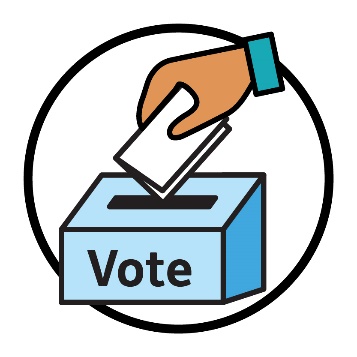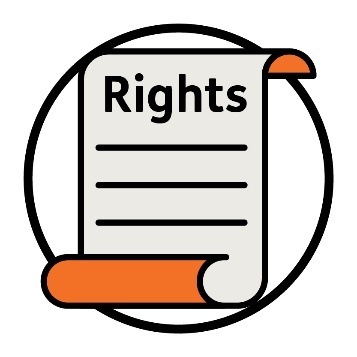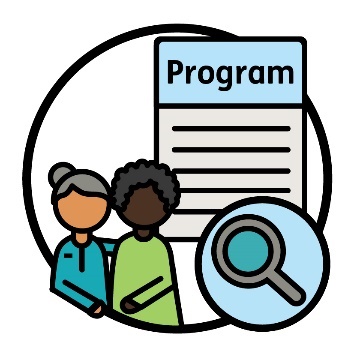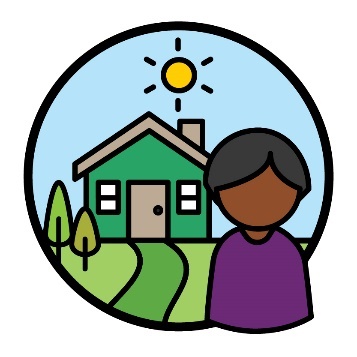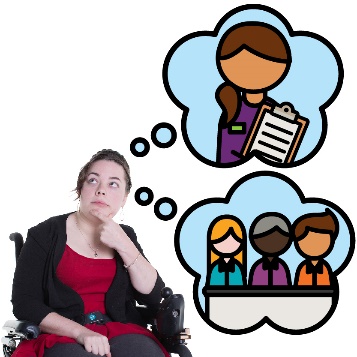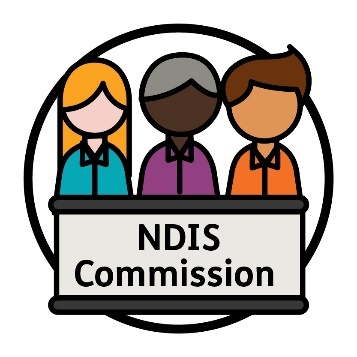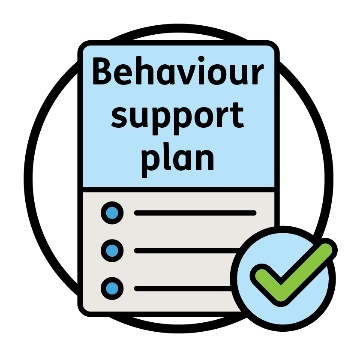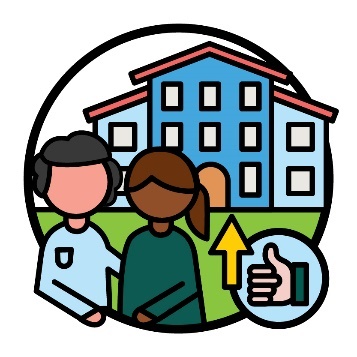Our reports
| The Reference Group connected with the community to find out about issues that affect them. | |
| The Reference Group members shared these issues with the NDIA. | |
What did the reports talk about?
NDIS plans
| Reference Group members shared that people with intellectual disability must prove their disability to the NDIS a lot of times. |
| And it’s harder for younger people with intellectual disability to join the NDIS. |
| Members explained that it should be easier for people with intellectual disability to join the NDIS. |
This includes people with intellectual disability who: | |
|
|
|
|
|
|
| The justice system includes:
|
| Members shared that people want more documents to be easy to read. For example, Easy Read versions. |
This includes information about: | |
|
|
|
|
| It’s important for people with disability to understand the supports in their plan. |
This can help them to: | ||
|
| |
|
| |
| Members shared that decisions about plans are not always the same. | |
| This means participants get different services even though they need the same support. | |
| Participants are people with disability who take part in the NDIS. | |
| Members explained that some support coordinators will make phone calls for participants. And they charge participants money for this when they shouldn’t. | |
| A support coordinator is someone who helps participants plan and use their supports. | |
| Members also explained that support workers need better training so they know how to support people with intellectual disability. | |
NDIS services and supports
| Reference Group members shared there are issues with the way providers offer services to people with disability. |
| Providers support people with disability by delivering a service. |
| Members also shared that there are not enough support coordinators for participants who need extra support. |
| Members explained that people with disability who have contact with the justice system should be able to use Justice Liaison Officers (JLOs). JLOs support prisons to understand how they can use the NDIS. |
| This can help people prove that they need to take part in the NDIS. | |
| Members shared there are issues with how people find and use services when they live very far away from cities. | |
| This also includes issues with how well services work for some people with disability. For example, people with intellectual disability. | |
| Members shared that some people with intellectual disability experience restrictive practices. And this happens without their control. | |
| Restrictive practices are actions that stop people from:
| |
| Members explained there are issues with home and living supports. | |
| For example, issues with not enough housing. | |
| There are also issues with providers:
| |
| Members also explained that some people with intellectual disability have more issues with housing supports. | |
| Members shared that when the NDIA improves home and living supports it will help participants reach their goals. | |
| Members also explained that some people thought testing the new computer system in Tasmania worked well. | |
| But some people thought it didn’t work well at all. | |
| Members shared there should be more information to help people with intellectual disability report fraud. | |
| Fraud is something someone plans to do that is not honest. Fraud is a crime. For example, if a provider charges someone for a service they didn’t receive. | |
NDIS providers
| Behaviour support practitioners help people with disability to:
|
| Reference Group members shared that some practitioners make behaviour support plans without meeting participants. |
| Members explained that people with disability have problems getting the same quality of support from different workers. |
| Members shared that health professionals need more training on how to better support people with intellectual disability. |
| For example, dentists can share information about other services that can help people stay healthy. |
The community
| Members shared that people with intellectual disability want to use their rights to vote. |
| Rights are rules about how people must treat you:
|
| And they also want to use their right to check the programs and services they use. |
| The Australian Government shared how much money they plan to give the NDIS. |
| Members explained people worry about the information they shared. |
| They worry the Australian Government hasn’t explained this information well for:
|
Other services and supports
| Reference Group members shared people worry about how the NDIS works with other services. | |
For example, other services that support: | ||
|
| |
|
| |
|
| |
| Members also shared that these services need to work together when they offer supports. This includes supports that are fair for people with intellectual disability in the justice system. | |
| And they should support people with intellectual disability to use NDIS supports during this time. | |
| Members explained sometimes there are gaps in how people understand:
| |
| The NDIS Quality and Safeguards Commission makes sure participants:
In this bulletin we call them the NDIS Commission. | |
| This includes their role to make sure people use behaviour support plans for participants. | |
| Members shared that younger people with disability living in aged care need better services and supports. | |
Our reports
| The Reference Group connected with the community to find out about issues that affect them. | |
| The Reference Group members shared these issues with the NDIA. | |
What did the reports talk about?
NDIS plans
| Reference Group members shared that people with intellectual disability must prove their disability to the NDIS a lot of times. |
| And it’s harder for younger people with intellectual disability to join the NDIS. |
| Members explained that it should be easier for people with intellectual disability to join the NDIS. |
This includes people with intellectual disability who: | |
|
|
|
|
|
|
| The justice system includes:
|
| Members shared that people want more documents to be easy to read. For example, Easy Read versions. |
This includes information about: | |
|
|
|
|
| It’s important for people with disability to understand the supports in their plan. |
This can help them to: | ||
|
| |
|
| |
| Members shared that decisions about plans are not always the same. | |
| This means participants get different services even though they need the same support. | |
| Participants are people with disability who take part in the NDIS. | |
| Members explained that some support coordinators will make phone calls for participants. And they charge participants money for this when they shouldn’t. | |
| A support coordinator is someone who helps participants plan and use their supports. | |
| Members also explained that support workers need better training so they know how to support people with intellectual disability. | |
NDIS services and supports
| Reference Group members shared there are issues with the way providers offer services to people with disability. |
| Providers support people with disability by delivering a service. |
| Members also shared that there are not enough support coordinators for participants who need extra support. |
| Members explained that people with disability who have contact with the justice system should be able to use Justice Liaison Officers (JLOs). JLOs support prisons to understand how they can use the NDIS. |
| This can help people prove that they need to take part in the NDIS. | |
| Members shared there are issues with how people find and use services when they live very far away from cities. | |
| This also includes issues with how well services work for some people with disability. For example, people with intellectual disability. | |
| Members shared that some people with intellectual disability experience restrictive practices. And this happens without their control. | |
| Restrictive practices are actions that stop people from:
| |
| Members explained there are issues with home and living supports. | |
| For example, issues with not enough housing. | |
| There are also issues with providers:
| |
| Members also explained that some people with intellectual disability have more issues with housing supports. | |
| Members shared that when the NDIA improves home and living supports it will help participants reach their goals. | |
| Members also explained that some people thought testing the new computer system in Tasmania worked well. | |
| But some people thought it didn’t work well at all. | |
| Members shared there should be more information to help people with intellectual disability report fraud. | |
| Fraud is something someone plans to do that is not honest. Fraud is a crime. For example, if a provider charges someone for a service they didn’t receive. | |
NDIS providers
| Behaviour support practitioners help people with disability to:
|
| Reference Group members shared that some practitioners make behaviour support plans without meeting participants. |
| Members explained that people with disability have problems getting the same quality of support from different workers. |
| Members shared that health professionals need more training on how to better support people with intellectual disability. |
| For example, dentists can share information about other services that can help people stay healthy. |
The community
| Members shared that people with intellectual disability want to use their rights to vote. |
| Rights are rules about how people must treat you:
|
| And they also want to use their right to check the programs and services they use. |
| The Australian Government shared how much money they plan to give the NDIS. |
| Members explained people worry about the information they shared. |
| They worry the Australian Government hasn’t explained this information well for:
|
Other services and supports
| Reference Group members shared people worry about how the NDIS works with other services. | |
For example, other services that support: | ||
|
| |
|
| |
|
| |
| Members also shared that these services need to work together when they offer supports. This includes supports that are fair for people with intellectual disability in the justice system. | |
| And they should support people with intellectual disability to use NDIS supports during this time. | |
| Members explained sometimes there are gaps in how people understand:
| |
| The NDIS Quality and Safeguards Commission makes sure participants:
In this bulletin we call them the NDIS Commission. | |
| This includes their role to make sure people use behaviour support plans for participants. | |
| Members shared that younger people with disability living in aged care need better services and supports. | |












































